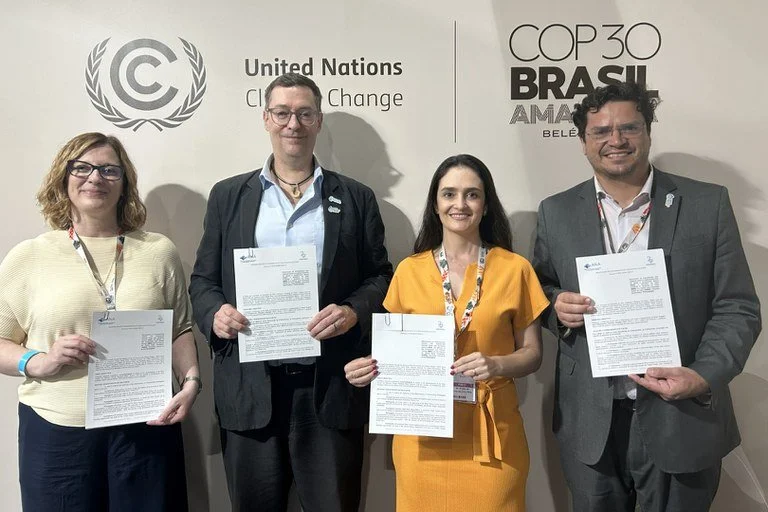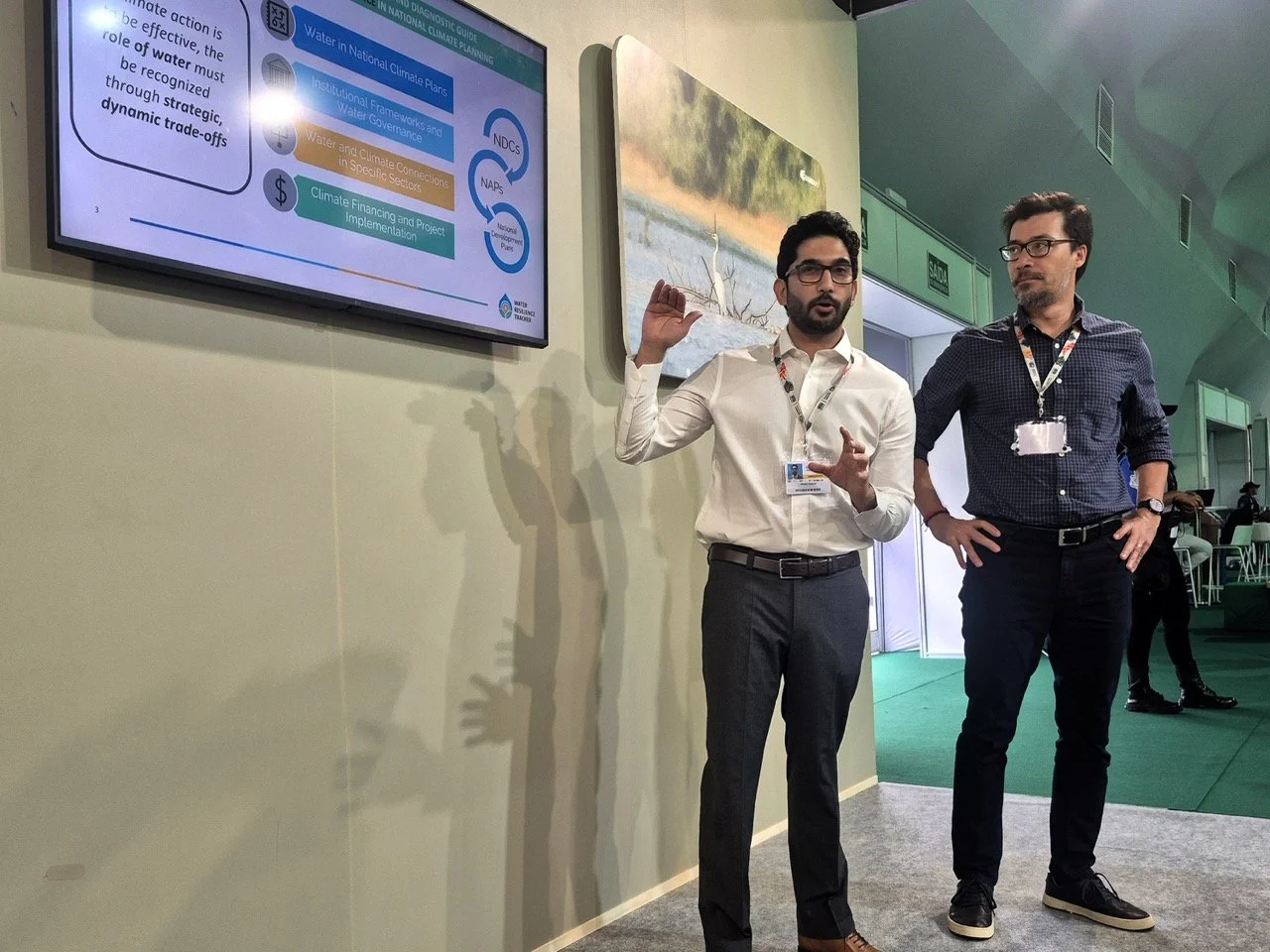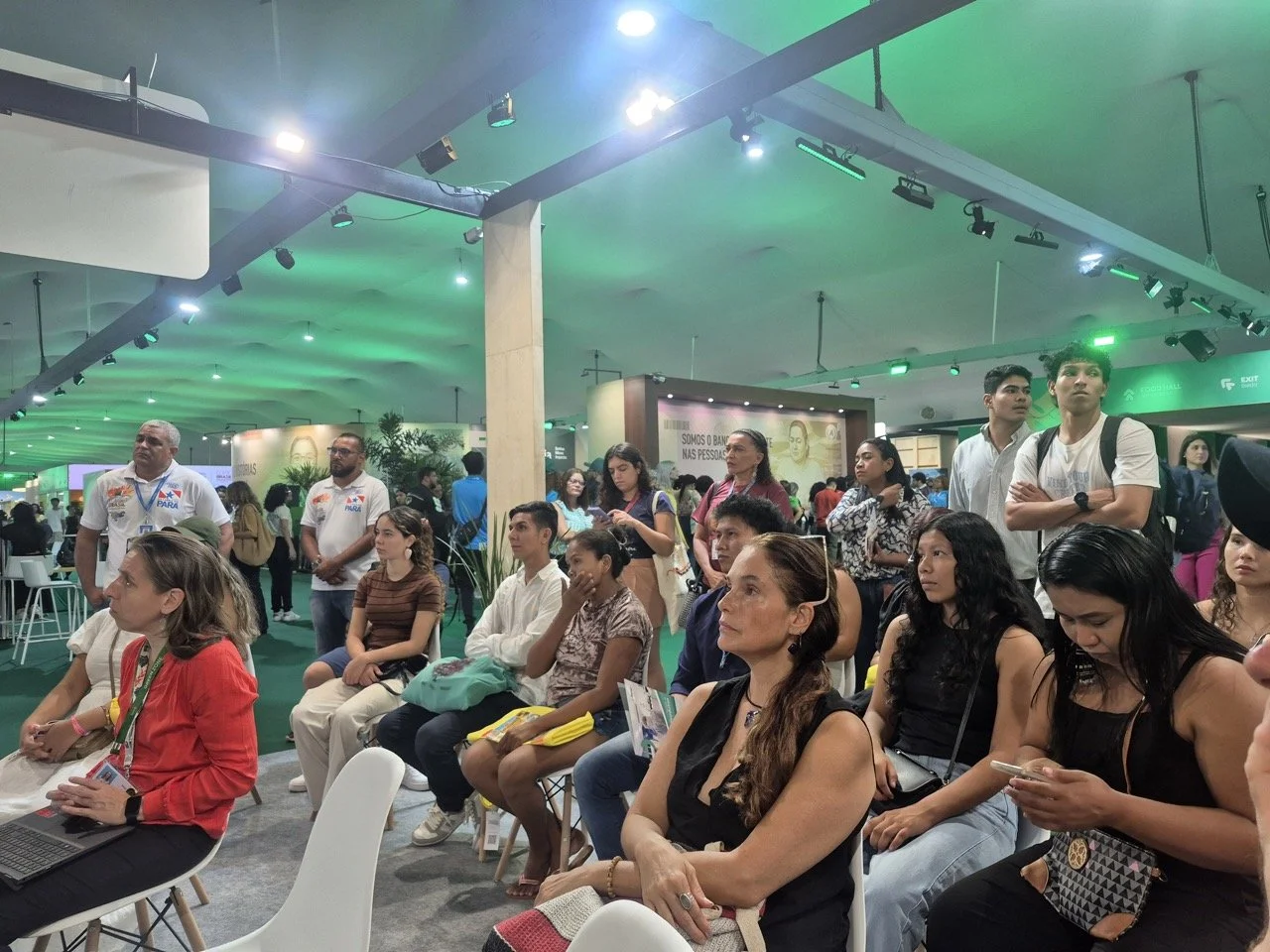Water Resilience Tracker signs agreement with Brazil to extend collaboration
On Thursday 13 November 2025 at COP30 in Belém, the Water Resilience Tracker signed an MoU with national partners in Brazil: the National Water and Basic Sanitation Agency (ANA) and the Ministry of Environment & Climate Change (MMA).
From right to left at the signing of the MoU: the National Secretary for Urban Environment, Water Resources, and Environmental Quality, Adalberto Felício Maluf Filho; the CEO of ANA, Veronica Sánchez; the Executive Director of AGWA, John Matthews; and ANA Superintendent of Water and Socioeconomic Studies, Ana Paula Fioreze.
The MoU marks the second phase of implementation of the Water Resilience Tracker in Brazil, which extends and deepens application of the Tracker across sectors and down to working with decision-makers at the river basin level.
“We still need to better integrate water-climate links into sectoral plans,” said Ana Paula Fioreze (ANA), speaking at the Spanish Pavilion at COP on Wednesday. “This is where the Water Resilience Tracker plays a key role. It provides a shared framework to strengthen coordination between ministries and make water resilience a connecting thread across national adaptation and development strategies.”
“In Phase II [of the Water Resilience Tracker], we want to apply the framework at basin level and bring this to the local community, to the local perspective, to the local decision-makers,” added Fioreze. “We want to use this break silos when implementing the National Adaptation Plan that was released yesterday.”
From engagement to implementation
In the first phase of our collaboration with Brazil, the Tracker used an AI-assisted review of eight national policies to inform the development of a joint plan of action to better acknowledge the central and strategic role of fresh water across climate plans. One result was that Brazil’s five-year national climate commitment (NDC) includes a new section on climate adaptation with water resources at its center. Another is that Brazil’s first National Adaptation Plan (NAP), delivered at COP30, contains a chapter on water recognising water as a cross-cutting issue.
“National Adaptation Plans are important because funding agencies, even private investment, look at NAPs to find projects that they want to support, fund, and align with,” said John Matthews (Alliance for Global Water Adaptation - AGWA), who signed the MoU to implement the Tracker with Brazil. “A NAP serves as a signal to investors and donors of national priorities. The Tracker led to water flowing throughout Brazil’s very first national adaptation plan.” The Inter-American Development Bank supported this first phase of work.
In Phase II of the Tracker outlined in the MoU, the action plan includes applying the Tracker to 16 sectoral NAPs of the National Climate Change Policy in Brazil, working with decision-makers in six priority river basins to strengthen climate plans, developing a national and sub-national capacity building plan on basin adaptation to climate change, and developing an economic trade-off analysis of different adaptation scenarios to support negotiations between national leaders in the agriculture, energy, and water sectors. This second phase of work is supported by the UK Foreign, Commonwealth, and Development Office (UK FCDO) and is being implemented by AGWA, the International Water Management Institute (IWMI), Arup, and Deltares.
Work has already begun to enable the leveraging power of water for Brazil’s economy, ecosystems, and communities: the Tracker's collaboration with river basin authorities was showcased at two events hosted by ANA at COP: at the booth of the São Francisco River Basin Committee on 10 November, and at the Booth of the Paraíba do Sul, Paranaíba, and Guandu River Basin Committees on 14 November.
L-R: WRT Director Idrees Malyar and Brazil Consultant Glauco de Frietas at the Booth of the Paraíba do Sul, Paranaíba, and Guandu River Basin Committees on 14 November.
At a COP seen as a moment to secure implementation of national climate adaptation commitments, the Water Tracker and host country Brazil are demonstrating how political commitment and international collaboration can deliver a climate- and water-resilient future.







